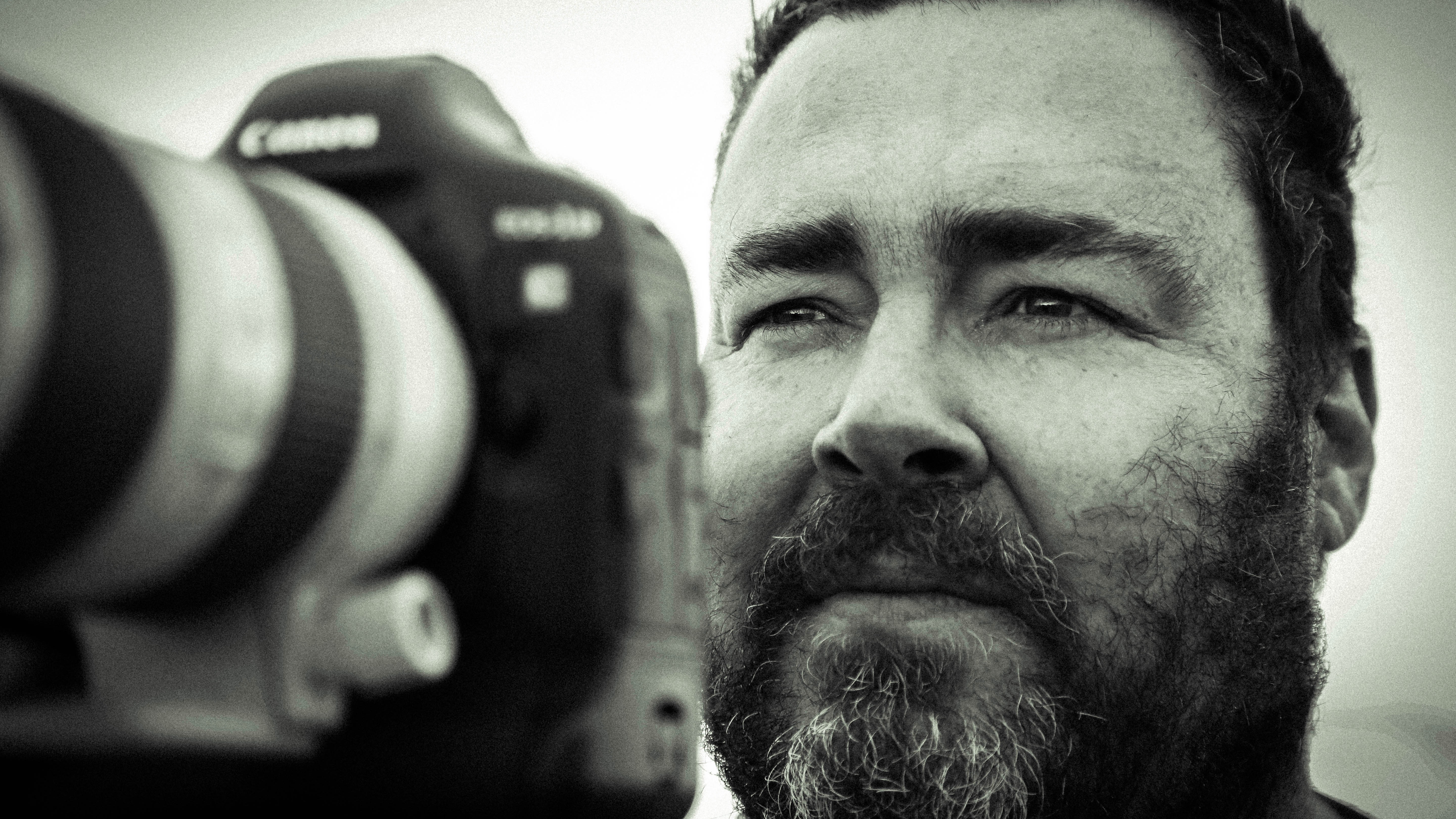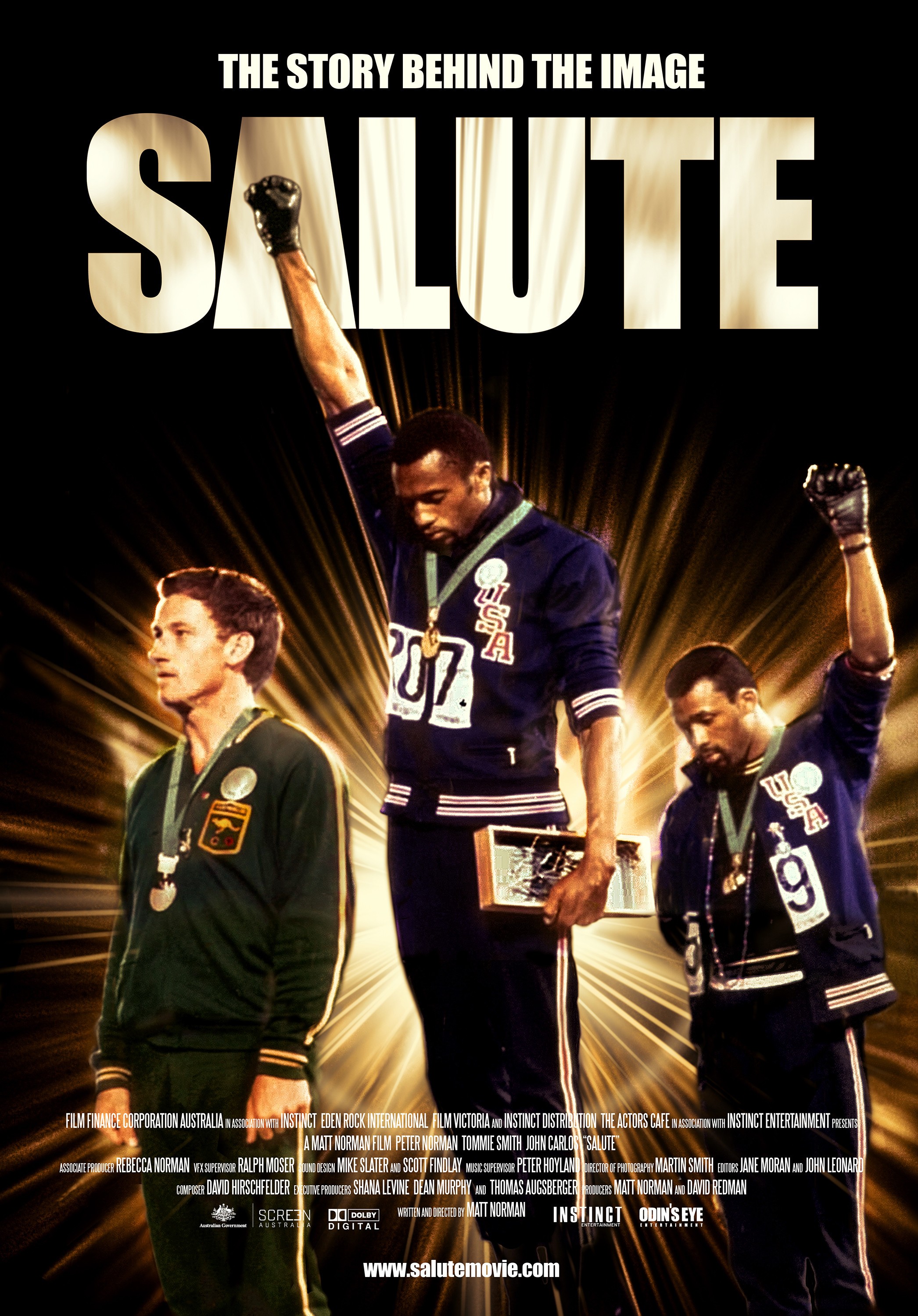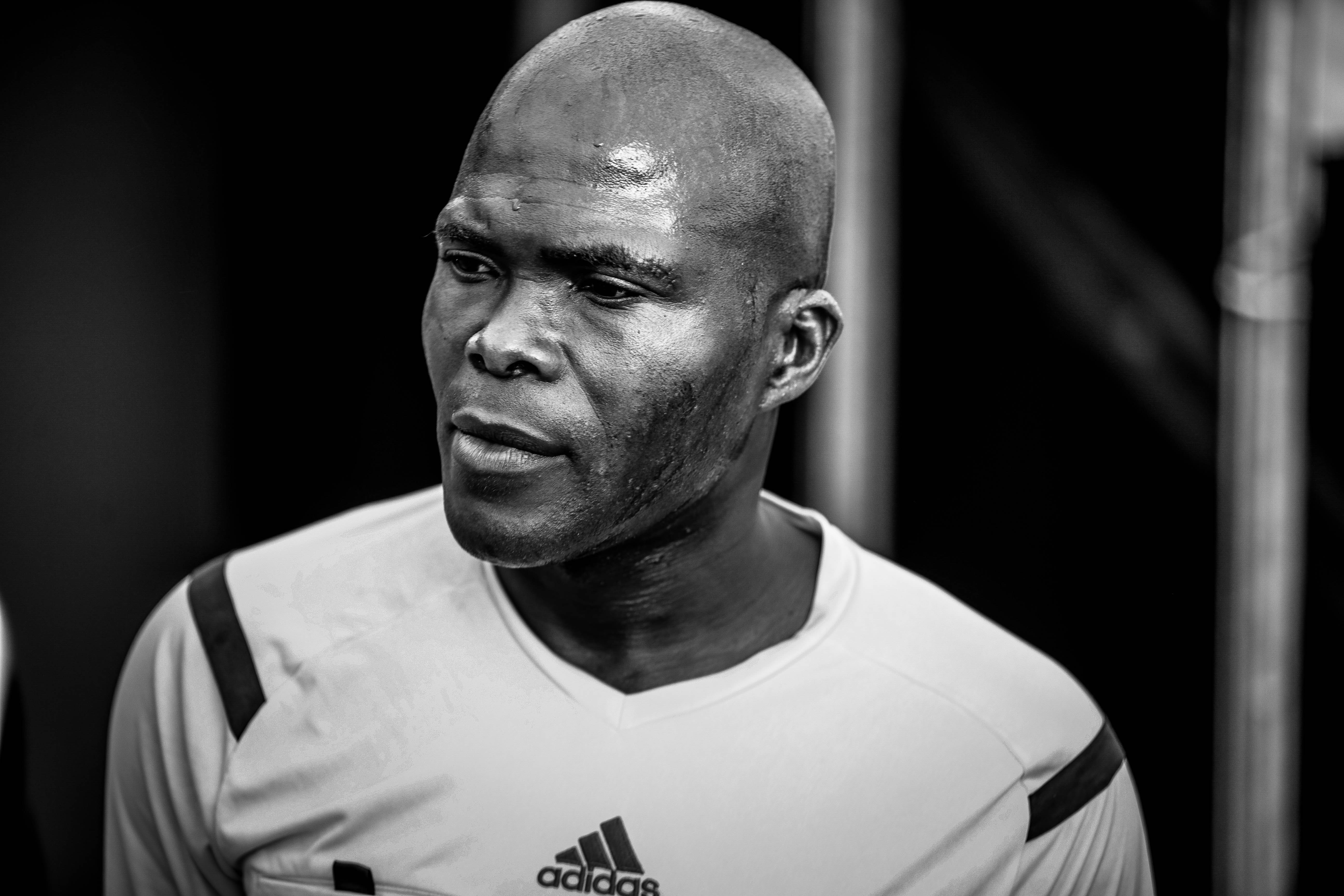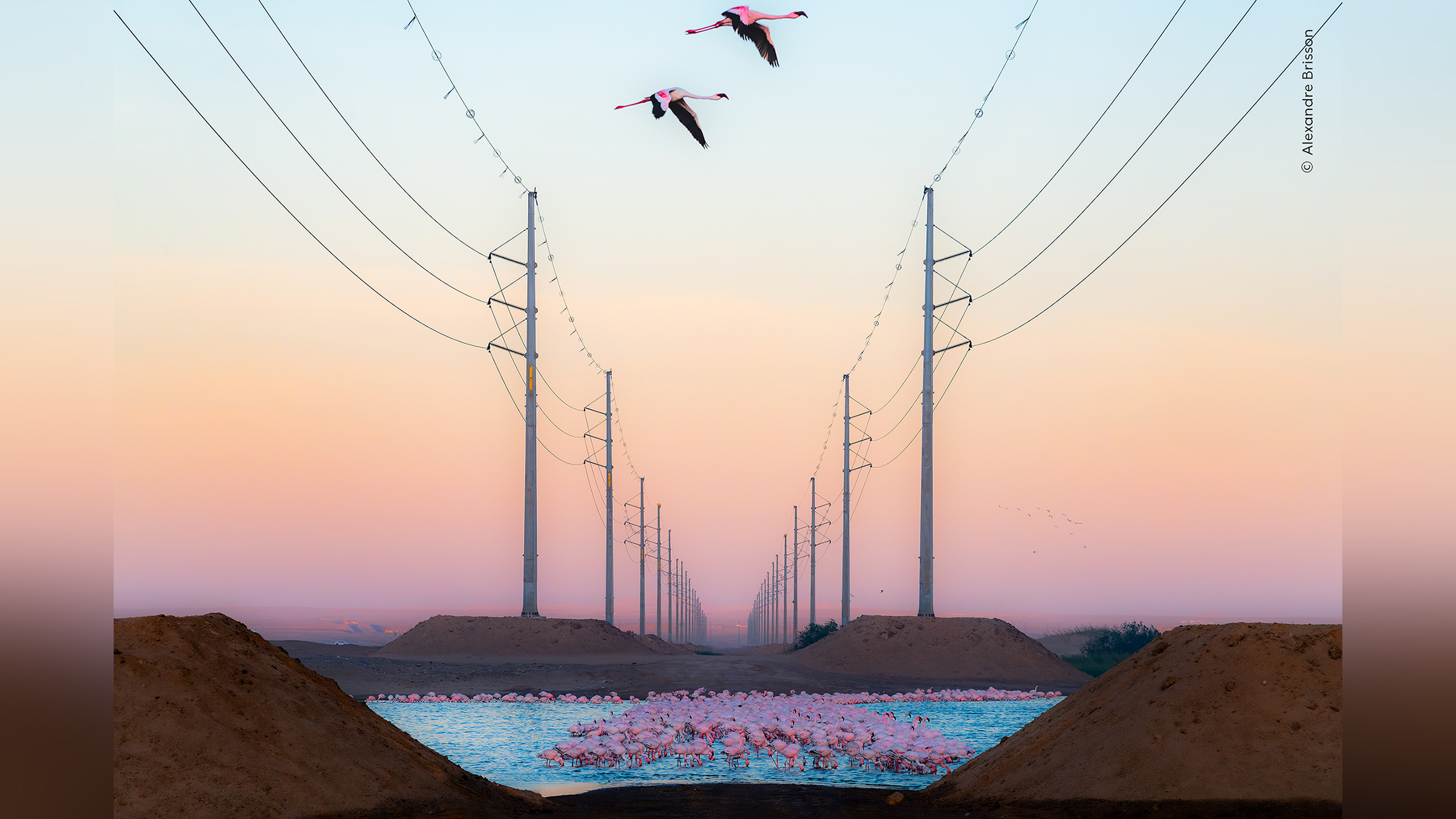From actor to director: award-winning filmmaker Matt Norman on moving behind the lens
After 25 years in front of the camera, Matt Norman was inspired to get behind one

Filmmaker Matt Norman wears many hats – from producer and director to writer and cinematographer, winning quite a number of accolades and awards over the last couple of decades across his varying disciplines. What drives Matt’s success is his passion to tell hard-hitting stories through the art of film and documentaries that pull back the curtain on human rights, social issues and mental health.
Matt’s most acclaimed sports documentary, Salute, was voted by Red Bull as one of the Top Nine Sports Documentary Films of all time. A decade after its release, it continues to screen across the globe.
“When my film Salute had its world premiere, I was invited to meet the Dalai Lama. It was incredible. I asked him, did you know that Yoda from Star Wars was based on you? It was crazy as he had no idea!”
A creative family affair
Like many visual artists, Matt’s life as an image creator was inspired by his family at an early age.
“Mum used to take a lot of photos of us as kids… you know, professional black and white film photos. She always had her camera everywhere we went. We had a darkroom in our house, so I think she was the one that got me hooked. My mother was also the one who got me into Canon cameras back in the 1980s, and it’s been Canon for me ever since.”
Matt’s grandmother was also influential in Matt’s passion for photography and introduced him to the joys of 8mm movie film.
“She had all these amazing projectors, cameras and lenses. So, between my grandmother and mother, I think it was inevitable that I would get the bug for capturing images.”

Despite Matt’s early days behind the camera, his filmmaking career began in front of the lens.
“I was an actor in the film industry for 25 years and I’ve met some amazing filmmakers, actors and actresses.”
Being on set, Matt saw first-hand how filmmakers use their position to “seize an opportunity to truly bring an idea to life”. He was inspired and decided to step behind the camera to tell stories that he thought the world needed to know. Matt set up what is now known as Wingman Pictures International, with the mission of making truly international films.
Personal experience drives his narratives
Since those early days, Matt’s films have gained him worldwide recognition winning dozens of international awards; most recently at the 2021 Mindfield Film Festival in Albuquerque where he collected the Diamond Award for Best Experimental Short for I’ll Stand With You.
“I enjoy making films that not only educate, but influence. Whether it’s films about mental health or films against racism, I am always looking for something that gives the world perspective”.
Each of Matt’s documentaries has a strong human element to it that aims to inform, educate and inspire his audience.
“My work is meant to be an escape for people who are facing the issues I discuss in my films. I tackle topics that a lot of people don’t want to talk about because they’re too scared of how it will make them feel.”
Interestingly, Matt has learned to draw inspiration from his own personal experiences with bipolar disorder and leans into himself to fuel his creative process.
“I wrote a film called Shackle very, very quickly… in about two and a half hours, during a manic episode. This’ll be the next film I shoot.”
Matt explains that he never quite knows when inspiration will strike. “Often I wake up in the middle of the night with an idea and I usually write the script that same night. I’m a speed typer. I can type quicker than I can talk. If you look at history, most of the best people creatively are affected by bipolar.”

Going global with the Peter Norman story
Matt is currently deep in the throes of his current project, When we were brothers – The Peter Norman story, which he is shooting on his Canon EOS C500 Mark II professional video camera. Based on his international award-winning documentary, Salute, this newest feature film delves into the story of Matt’s famous late uncle, Peter Norman.
In 1968, Peter Norman was an Australian track athlete who won the silver medal in the 200 metres dash at the Mexico City Olympic Games with a time of 20.06 seconds. While Peter’s impressive performance remains an Oceanic record to this day, Peter’s legacy is synonymous as being one of three athletes pictured in the famous 1968 Olympics Black Power Salute photograph, alongside the gold and bronze medalists, Tommie Smith and John Carlos.
“I’d grown up knowing the story, but I’d only ever heard the African American side of things… the Tommie Smith and John Carlos version. I used to always ask my uncle Peter, you know, ‘Tell me about your story, I’d like to know what happened to you’. And then I realised that he was actually part of the protest by wearing an Olympic Project for Human Rights badge.”
While the film is currently undergoing more scripting ideas to bring its focus to a more international audience, Matt is in production on the documentary 6 Ways To Break Your brain, a film about the worst mental health crisis we’ve ever seen.
The Canon EOS C500 Mark II has been the perfect camera on this shoot and continues to leave Matt in awe of its true potential. In September Matt is also directing and producing the romantic comedy Fumblelove, starring Australian actor Steve Bastoni.

The right gear
For the past two decades Matt has always wanted to shoot projects using the very latest camera equipment. He believes cameras have come a long way over the years, but you can never go past their image quality. “Canon has never let me down. When you use a Canon camera you’re always guaranteed a unique quality in the images they make. The brand is famous for the ‘Canon Look’ and once you’ve been bitten by it, you will find it hard to love anything else.”
• Canon EOS-1D X Mark II
• Canon EOS-1D C
• Canon EF 70-200mm f/2.8L
• Canon EF 24-105mm f/4L
• Canon EF 16-35mm f/4L
• Canon EF 24-70mm f/2.8L
• Canon EF 85mm f/1.4L
• Canon EF 50mm f/1.4 USM
• Helios 44-2 (an old Russian lens used with an EF mount adaptor)
• Canon Extender 2x convertor for the 70-200mm
For Matt, having the right camera and lenses in his kit are critical to ensuring his films and documentaries deliver on the style and tone needed to educate and inspire his audience.
“I found that my creativity spiked when I started shooting with the Canon EOS-1D C, and particularly the Canon EOS-1D X Mark II,” he says. “What I also love about the EOS-1D Series is how durable it is”.
Matt said that when he began using the EOS C500 Mark II a lot of people he worked with were all really impressed with it.
“A camera like this is a big decision for most, but for me it was really simple. It has everything I need. The 5.9K Cinema RAW Light is stunning, although shooting in 4K is just as pleasing especially with the XF-AVC codecs.”
Matt says one of the best parts of the EOS C500 Mark II is its modularity.
“If I need to throw the camera on a gimbal I can do it. It’s great stripped back to nothing for those run and gun shoots but then builds up beautifully for everything else.”
Matt adds that the buttons are really easy to read and the customisation is the best he’s seen on any camera. He says having built-in NDs is also one of his favourite things about the camera. Furthermore, he contends that the autofocus on the EOS C500 Mark II is impressive and a “must have” on a camera like this because when you are running around trying to pick focus, sometimes you don’t want manual. You can simply put the camera on face only and set and forget.
In summary, Matt states, “The image this camera puts out is at the very highest level and functionality, and ease of use of the camera is the best I’ve used. The dynamic range, the NDs, the autofocusing, RAW Light and internal RAW recording are all really important in a new camera purchase. While I always encourage to try before you buy, I can highly recommend this camera for all purposes and for whatever type of filming you’d do.”

Like most cinematographers, Matt has experimented with a vast array of lenses, but has found his favourite in the EF 85mm f/1.4L USM series. “That’s what I call the best B-Roll shot lens you can get. In fact, it’s always on my EOS C500 Mark II, which is my main set-up for video.”
When it comes to making documentary films Matt says, “One of my absolute go to lenses is the EF 24-70mm f/2.8L series. If there was one lens that I can’t do without then the 24-70mm is it. This is my ‘A’ lens for interviews. It’s perfect image, sharpness and focal length guarantees I’ll get every shot I need on a run-and-gun documentary”.
In terms of Canon cinema lenses Matt is most excited about, it’s the all-new CN-E 20-50mm T2.4 L and CN-E 45-135mm T2.4 L. He believes these dedicated cinema lenses will not only serve the documentary film market, but feature length narratives as well. Matt said the most important thing when shooting, especially a documentary, is getting the shot without the need to continually change lenses and that these new lenses give you the opportunity of keeping one lens on for all shooting situations.
Teamwork is dream work
As with any ambitious creative project, the key to Matt’s success has largely been down to his ability to build strong teams around him and get the best people in the right place.
“I always aim to work with people who are ten times better than me,” he comments. “That’s why I’ve got Geoffrey Hall onboard for When We Were Brothers – his work is absolutely insane.”
Matt has also developed a strong professional partnership with Canon Australia.
“It’s always been easy to approach the Canon Professional Services (CPS) team. They’ve always been really open to supporting filmmakers like myself with equipment hire, servicing and general technical knowledge.”
“Canon has always had the best gear on the market. But when it comes to film-making, I also feel supported by Canon’s CPS team.”
- When We Were Brothers is currently in the last stages of development and is expected to be released in the coming year or so.
Visit Wingman Pictures to find out more about Matt Norman's films.
To discover the Canon EOS C500 Mark II cinema cameras, head to Canon Australia's official website.
The best camera deals, reviews, product advice, and unmissable photography news, direct to your inbox!
Digital Camera World is one of the leading authorities on camera and photography news, reviews, techniques, tutorials, comparisons, deals and industry analysis. The site doesn't just specialize in cameras, but all aspects of photography, videography and imaging – including camera phones, gimbals, lenses, lighting, editing software, filters, tripods, laptops, printers, photo books, desks, binoculars and more.
Whether you're using, looking to buy or trying to get the most out of a compact camera, action camera, camera drone, cinema camera, beginner camera or professional camera, Digital Camera World has a roster of experts with combined experience of over 100 years when it comes to cameras, photography and imaging.

